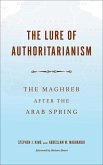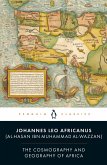In 1962 when Algeria finally obtained its independence from France after an eight-year guerilla war, it immediately embarked upon a second revolution aimed at destroying the colonial economic and social order. While the nationalist leaders struggled for power in the first hours of independence, peasants seized French farms and workers the factories, thus setting Algeria on the road toward a new socialist order. This book is a study of the Algerian socialist revolution, of those who made it and those who gained by it. The primary focus is on political behavior, on those aspects of the struggle among Algerian leader which vitally affected the character of the new order. The authors find that even though Algeria acquired all the trappings of a socialist state and economy, politics remained almost exclusively a question of personal relations, alliances, and rivalries among a small group of leaders--what the authors call, borrowing a concept from the fourteenth-century Arab historian Ibn Khaldun, the politics of assabiya. Algeria's first President, Ahmed Ben Bella, tried to integrate the new and old political groups into a modern political system, but he failed. His overthrow by the army opened a second phase in the process of building stable political institutions and of overcoming the tradition of "palace conspiracies and rebellions of feudal lords." The authors trace in details this cyclical process during the first six years of Alergian independence. The work benefits from a wealth of first-hand information gathered during the authors' three-year stay in the country. The resulting picture is that of a new nation embarked upon a socialist "revolution" which owes little to Soviet or Chinese influences or, in some respects, even to the intentions of its leaders. This title is part of UC Press's Voices Revived program, which commemorates University of California Press's mission to seek out and cultivate the brightest minds and give them voice, reach, and impact. Drawing on a backlist dating to 1893, Voices Revived makes high-quality, peer-reviewed scholarship accessible once again using print-on-demand technology. This title was originally published in 1970.
Dieser Download kann aus rechtlichen Gründen nur mit Rechnungsadresse in A, D ausgeliefert werden.









